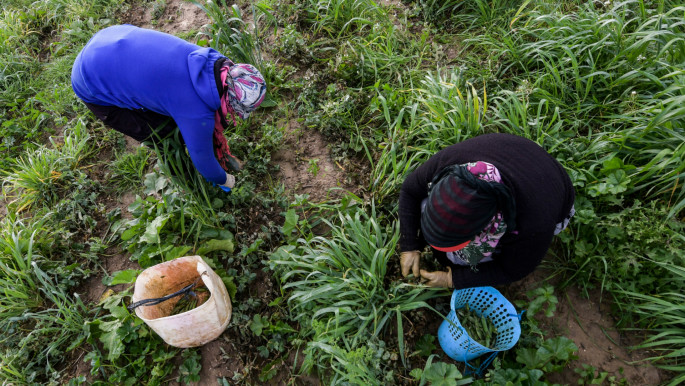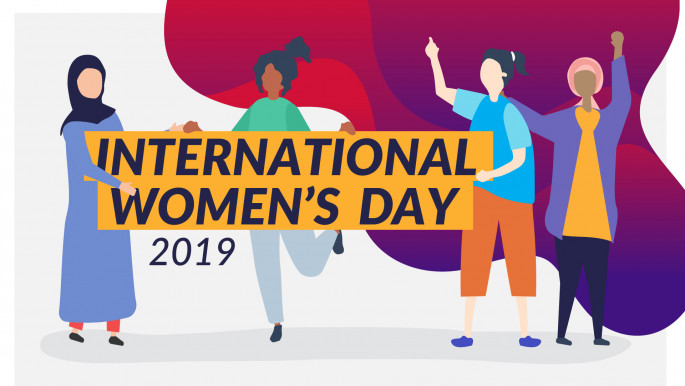How a win in Tunisia's inheritance law could contribute to ending gender inequality
The presidential initiative was put to parliament for discussion last week, months after Beji Caid Essebsi voiced support for the bill which would ensure that inheritance is split equally between male and female heirs. The law would also guarantee a freedom of choice between following the constitution or the Islamic (Sharia) law.
The legislative move is said to be grounded on the Tunisian constitution which states that Tunisia is based on three key principles: citizenship, people's will and superiority of law.
In addition, Article 21 of the constitution states: "All citizens, male and female, have equal rights and duties, and are equal before the law without any discrimination."
If adopted, the new draft would be the first of its kind in the Arab world where inheritance laws contribute to perpetuating gender inequality.
"Equal inheritance shouldn't be seen as a religious question but an economic right," said Leïla Belkhiria Jaber, head of Tunisia's National Chamber of Women Entrepreneurs (CNFCE).
"It's unacceptable that half of the Tunisian population does not enjoy this right in the same way," she added.
 |
Multiple studies and indicators have evidenced that women play an active role in economic life, and make a substantial contribution to the family income, yet in so many cases they are deprived of their property assets facing inheritance issues |  |
"Multiple studies and indicators have evidence that women play an active role in economic life, and make a substantial contribution to the family income, yet in so many cases they are deprived of their property assets facing inheritance issues," noted Moufida Abbassi, secretary and treasurer of the Association of Tunisian Women for Research and Development (AFTURD) which is dedicated to gender equality and women's empowerment.
 |
|
| Read also: In rural Tunisia, inheritance reform offers women rare boost |
Besides participating significantly to the financial support of the family and to the estate, Tunisian women contribute to the country's economic development.
The Centre for Research, Studies, Documentation and Information on Women (CREDIF) showed in a study dated 2010 that the household budget increases by 40 percent averagely when women are employed and contribute with their salaries. A survey conducted by the National Institute of Statistics (INS) in 2012 said that women give 20 to 50 percent of their work to Tunisia's economy.
A study released by the Collective 95 – For Equality in the Maghreb and AFTURD in 2014 indicated that denying women equal access to property assets would limit their economic autonomy and entrepreneurship as well as the country's growth potential.
Advocating for equal inheritance rights, the Tunisian Coalition for Equality in Inheritance has been calling for protection of women from financial insecurity.
The Coalition provided figures last year highlighting the gap between men and women in employment and access to finances. Women are twice as likely to be unemployed as men, and half of women aged above 60 have no source of income in contrast to a quarter of men. There are seven times more widowed women than widowed men in Tunisia, and women over 60 are three times more financially dependent on a family member than men.
 |
Denying women equal access to property assets would limit their economic autonomy and entrepreneurship as well as the country's growth potential |  |
CNFCE's president argued that keeping the existing inheritance provisions equals to a "loss of economic potential" since when either parent dies, women would find themselves discriminated against, deprived of their means, unable to provide financial guarantees, therefore much less able to invest or participate in economic life.
Abbassi stressed that despite there being "countless cases" of women working, managing the household, ensuring the wellbeing of their children, and often taking care of elderly relatives, they are typically granted half or even a tiny share of the legacy.
She also reminded that there are women who do not claim the same inheritance rights as men's, mostly in rural areas.
"They've been living in an environment where they can't even inherit half of the estate. Demanding equal parts will be unimaginable and much harder for them," the AFTURD's secretary explained.
"Family and group values come ahead of individual rights in that kind of reality," she added.
Latifa Rieni of Tourathna association, which promotes local products, said, "Tunisian women today work as much as men, they earn money and handle the family budget. But men get twice as much inheritance, and often they act as if they were entitled to the full legacy.
"The equal inheritance draft law is a positive initiative... it will clearly set equal rights for men and women, and it will avoid us fighting between brothers and sisters or taking our family disputes to court."
 |
Tunisian women today work as much as men, they earn money and handle the family budget. But men get twice as much inheritance, and often they act as if they were entitled to the full legacy |  |
The proposed bill has been received with celebration from liberals as much as fierce resistance from religious conservatives who warn against amending the Islamic legal provisions on inheritance which they deem "unquestionable".
In August 2018, the Ennahdha movement, which identifies itself as a Muslim democratic party, rejected the presidential proposal backing inheritance equality for contradicting existing Islamic laws. The party had nonetheless approved most of the other recommendations made by the Individual Freedoms and Equality Committee (COLIBE) established by Essebsi in 2017.
In June, the committee published a report proposing legislation in relation to inheritance equality and strengthening individual liberties. The report stirred up outrage on the grounds that the proposed reforms run counter the precepts of Islam and the Arab-Muslim culture.
 |
|
| International Women's Day: Special Coverage |
"This new law is very important. Despite Tunisian women working, playing an active role in all fields of life, and being a vital column in the family, they still face unequal treatment when it comes to inheritance," emphasised Rabiaa Babay, a university professor with a strong interest in women's issues.
The academic mentioned about plenty of rural women work, help their parents buy a house throughout their lifetime, then once the father dies they're left with nothing as the male relatives take the biggest share as well as the land property.
She also hinted at married working women who give their contributions towards household expenditure while the husbands take home loans, then if one day the woman divorces, the purchased house will be in the man's name leaving her without any share in the property.
"Tunisian women have made great advances since the time of President Bourguiba. Starting from 2011, we're fighting to preserve these gains and trying to move forward. Debating today a taboo question like equal inheritance is a big step ahead," Babay stated.
"Let's hope that next year by the time we celebrate International Women's Day, we will have a law granting equality in inheritance," CNFCE's Jaber concluded.
"Until then, we're here to speak out about the need to pass this draft for Tunisia's economic benefit."
Alessandra Bajec is a freelance journalist currently based in Tunis.
Follow her on Twitter: @AlessandraBajec





 Follow the Middle East's top stories in English at The New Arab on Google News
Follow the Middle East's top stories in English at The New Arab on Google News


